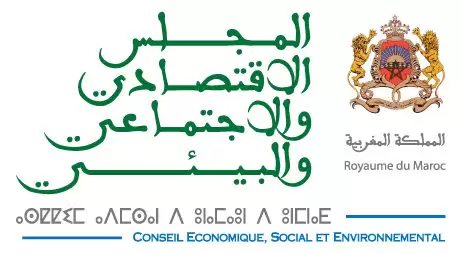
The ESEC calls for a participatory and integrated approach to agricultural product commercialization involving all relevant national and territorial stakeholders.
Synthesis
As early as the 1960s, Morocco started off several plans, programs, and large-scale projects to grow the agricultural sector and enhance output and exports. As such, significant progress has been achieved, particularly with regard to meeting national consumer food needs.
However, there is a gap between the manufacturing process and commercialization channels, which impedes the sector’s overall performance and efforts to combine both higher and lower production lines. Among the organizational and functional shortcomings of the commercialization process are the following:
- The lack of an integrated and comprehensive governance framework for commercialization weakens coordination among national and regional stakeholders;
- An excessive and unchecked intermediation system, particularly as regards offer-oriented wholesale markets, which allows for speculation and proliferation of players, penalizes the producers, affects product quality by expanding distribution channels, and raises consumer prices;
- Small- and medium-sized farms lack the organizational skills necessary to best market their products;
- Despite its critical relevance, little has been done to digitize the commercialization and valuation of agricultural products, making it challenging for small and medium-sized farmers to gain direct access to different markets and outlets;
- The requirements of some importing countries, particularly in terms of health standards, make access to certain foreign markets increasingly challenging;
- Agriculture suffers significant losses and wastage at all points of the supply chain without a specific mechanism incorporated into development plans and programs.
In light of this diagnosis, the Council calls for a participatory and integrated approach to agricultural product commercialization involving all relevant national and territorial stakeholders. It is therefore highly recommended to put into effect the following measures:
- Strengthen the price regulation mechanisms already in place for the cereals sector, and develop mechanisms tailored to the specifics of other agricultural sectors.
- Strengthen the role of Moroccan agricultural cooperatives (CAM) and review their governance and control system, while encouraging small and medium-sized farmers to join such cooperatives to ensure that cereal products are collected and sold at the reference price set by the competent authorities.
- Review the support and aggregation models of farmers into cooperatives or economic interest groups (EIGs), building on the working pattern of cooperative sugar and dairy units, the aim being to promote the commercialization conditions of agricultural products and increase producer income.
- Ensure that there is a clearly defined and enforceable regulatory structure governing the roles, rights, obligations and responsibilities of all the market chain intermediaries.
- Replace the current rentier structure with a fast-paced wholesale market overhaul that allows competition and imposes strict specifications.
- Build solid partnerships between different stakeholders at the national and regional levels to better incorporate the commercialization segment into the value chain.
- Assure the development of a processing industry for agricultural products (fruits and vegetables) through the allocation of some productions to this purpose.
- Accelerate commercialization’s digital transition to encourage the integration of small and medium-sized producers.
- Promote cooperative short-term commercialization channels and boost the retail sector.
- Adopt a law to combat the loss and waste of agricultural products and adopt more circular practices throughout the distribution, storage and commercialization chain.
